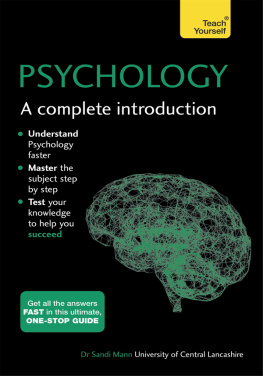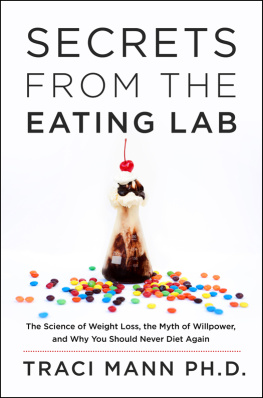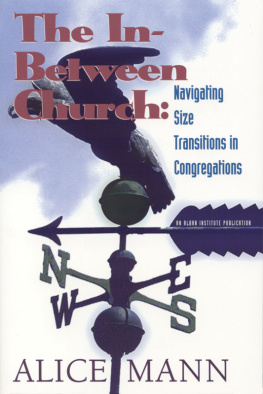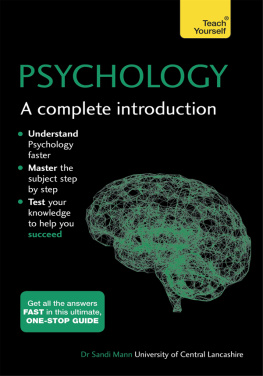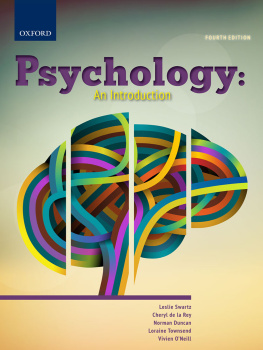PSYCHOLOGY
A Complete Introduction
Sandi Mann
Sandi Mann is a Chartered Psychologist and Associate Fellow of the British Psychological Society. She is Senior Psychology Lecturer at the University of Central Lancashire where she has been teaching a range of psychology topics for over 15 years.
Contents
Introduction
Psychology is the study of human mind and behaviour and consists of various subfields and specialities. Psychology is a science because it uses scientific methods of enquiry to develop theories about how humans think and behave. Different types of psychologist work in different settings and using different techniques and client groups in order to develop their knowledge and apply what they know to help people in various ways.
What is psychology?
This is a question that I encounter more than I ever could have imagined when I began my career. Most people have some vague understanding of what psychology is, but I find that very few can really articulate this into anything meaningful (by which I mean something a bit more than Something to do with the brain or even Its about people, isnt it?). In fact, many people seem to see psychologists almost as magicians, capable of reading peoples minds, or even controlling them and making them do things they dont want to. Ask any psychologist about the most common response they get at social gatherings when they reveal their profession, and I bet its this one: Oh gosh, I better be careful what I say, accompanied by some awkward body movements, as our conversational partner anxiously imagines we will be analysing their every move or comment to discover their deepest, darkest secrets.
It is true, psychology is about the brain and it is about people (but its not true that psychologists can uncover your secrets by the way you scratch your nose). In fact, the simplest definition of psychology is that it is the science of the mind.
But what do we mean by the mind? And for that matter, what do we mean by science?
The mind is the source of a whole range of complex and mysterious functions, including attitudes, thoughts, emotions and behaviour. So, psychology is the study of all that. It is a science because psychologists study the mind using the rigorous methods that any other scientist uses. These include observation, experiments, hypothesis testing and more all of which will be explained in more detail in . Obviously, we cant study the mind directly in the same way that physicists can observe neutrons; psychologists cant exactly cut into the brain to see what is going on, and, even if they could, such an investigation would not reveal much. So, instead, we generally have to study human behaviour in order to test theories about how the mind works. Research in psychology, then, seeks to understand and explain how we think, act and feel. Because psychology is a science, it attempts to investigate the causes of human behaviour using systematic, rigorous and objective procedures for observation, measurement and analysis, all supported by theoretical underpinnings, explanations, hypotheses and predictions.
Thus, a better definition of psychology is probably this: the scientific study of mind and behaviour.
Psychology is the study of the mind and behaviour. The discipline embraces all aspects of the human experience from the functions of the brain to the actions of nations, from child development to care for the aged. In every conceivable setting from scientific research centres to mental healthcare services, the understanding of behaviour is the enterprise of psychologists.
Definition of psychology as provided by the American Psychological Association (APA)
Interestingly, psychology evolved from the disciplines of philosophy and biology, both of which date back as far as the early Greek thinkers, including Aristotle and Socrates. The word psychology is derived from the Greek word psyche, literally meaning life or breath, and the Greek word logia, meaning the study of something. The groundwork for the study of psychology was laid by the behaviourists, who relied on controlled laboratory experiments to identify the causes of human behaviour. Later, cognitive psychologists adopted this same rigorous, laboratory-based scientific approach too, with an emphasis on how thought processes play a role in explaining behaviour. Psychologists today explore a wide range of constructs such as perception, thinking, attention, group processes, learning, emotion, motivation, brain functioning, personality, behaviour and interpersonal relationships.
| Spotlight: The first psychology laboratory |
The German psychologist Wilhelm Wundt (18321920) opened the first experimental psychology laboratory in Leipzig in 1879.
The naturenurture debate
One of the major debates underlying psychology is the so-called naturenurture one. Put simply, a lot of psychology is concerned with the degree to which our behaviour, attitudes and traits are determined by inherited traits (nature) and the degree to which they are shaped by other influences throughout our lives (nurture). On one side of the debate you have the biological approach, which focuses on physiological processes and structures to explain behaviour. On the other side, there is the behaviourist perspective that states that all behaviour is learned through conditioning. In general, those behaviours or attributes that emerge the earliest are most likely to be hereditary rather than learned. Those that emerge later in life, as a result of maturation, are more likely to be learned.
Those who adopt the most extreme hereditary perspectives are known as nativists. Their basic assumption is that the characteristics of the human species as a whole are a product of evolution and that individual differences are due to each persons unique genetic code. At the other end of the spectrum there are the empiricists who believe that all behaviour is shaped by experience. For them, maturation applies only to biological processes rather than to the development of such things as personality. For example, ).
In contrast to Chomsky, the empiricist .
| Spotlight: Nature and nuture |
Although the phrase nature and nurture had been used by Shakespeare in his play The Tempest (161011), it was first used in its modern sense by the English Victorian scientist Francis Galton (a cousin of Charles Darwin) in discussions about the influence of heredity and environment on social advancement.










